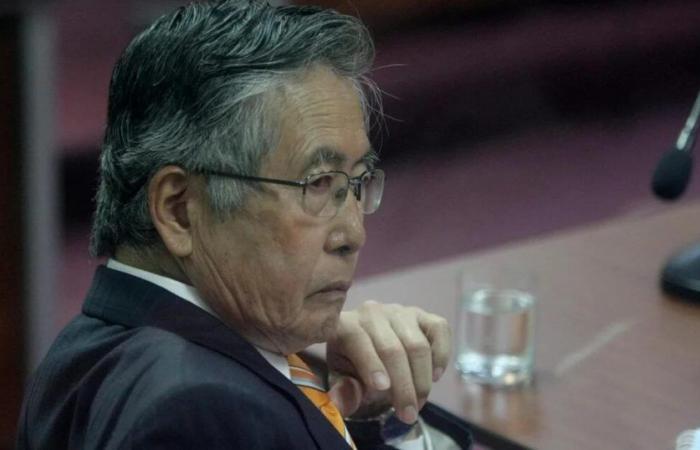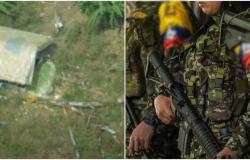
The Supreme Court of Chile has ordered this Monday to once again expand the crimes for which the former president of Peru Alberto Fujimori (1990-2000) was extradited in September 2007, in relation to five cases linked to serious violations of Human Rights, among which which includes the forced sterilizations committed during his Government. The investigating judge, Andrea Muñoz, has considered that “the elements of conviction analyzed allow us to conclude that there are at least founded presumptions or reasonable indications” that the former president “promoted an aggressive Family Planning policy that was intended to preferably and systematically apply a system of surgical contraception for women from low socioeconomic strata, rural or marginal urban areas, and indigenous peoples. This measure was done through “the imposition of goals, patient recruitment quotas, incentives and sanctions on health officials, which resulted in practices that ignored the due informed consent of those who were subjected to said invasive technique, the health and infrastructure conditions in which they were carried out and the post-operative follow-up, privileging unsafe spaces in the context” of the campaigns that “proliferated throughout the country.” Muñoz has pointed out that as a consequence “there was a high number of women who permanently and, involuntarily, lost their reproductive capacity, many of them also suffering other injuries to their physical or psychological integrity, in some cases even reaching death.” death”, according to the ruling, which states that Fujimori’s objective was to increase the country’s economic growth and reduce poverty by reducing the birth rate. “FOUR OTHER CASES In addition to forced sterilizations, the Supreme Court of Chile has added that there are also other flagrant violations of Human Rights and crimes against humanity that are imprescriptible from a criminal point of view, such as the kidnapping and murder of six members of the Ventocilla family (1992), the extrajudicial executions in the Castro Castro prison massacre (1992 ) and the homicides in the rescue of hostages at the Japanese Embassy in Lima (1997). “Consequently, and assuming that in all the cases described above, these are intolerable behaviors that cannot remain unpunished, but rather that “They must be investigated, tried and punished, regardless of the time in which they were committed, to which international cooperation must contribute,” he indicated. With this measure, the Chilean Judiciary has agreed to access the requests made by the Peruvian Embassy in Santiago de Chile in September 2021, so that Fujimori can face the respective criminal proceedings referred to at the national level. However, the judge has rejected the remaining requests for extension of extradition made by Peru, which included the illegal supply of firearms, illicit association to commit a crime violation of the sovereignty of a foreign State, generic falsehood and conspiracy, because their claims were not justified. participation in the events. Nor for illicit association to commit a crime and embezzlement, as the actions are prescribed. As well as the revelation of a secret of national interest to the detriment of the State for not configuring the reported facts of the type of criminal investigation investigated. THIRD EXPANSION OF CRIMES This is the third extension of crimes for which he was extradited, since the first was in June 2017 for crimes of qualified homicide and illicit association for the murder of six farmers in the so-called Pativilca massacre, committed by the Peruvian paramilitary detachment Grupo Colina in January 1992. The second was accepted at the beginning of this year for the crimes of illegal supply of firearms, generic forgery, conspiracy and others. The former leader of the country was released from prison in December 2023, where he had been since 2007 serving a 25-year sentence for the massacre of dozens of civilians. He benefited in 2017 from a humanitarian pardon granted by the then president Pedro Pablo Kuczynski, because his legal team alleged health problems due to his advanced age, however, Justice overthrew him months later, until the final resolution of the year. past. In addition to the 25-year sentence, Fujimori has another criminal trial ahead of him, along with several of his Health Ministers, for the forced sterilizations of almost 350,000 women and 25,000 men from different indigenous communities during his government. He did not repent for his crimes nor did he pay civil reparation, which the Attorney General’s Office estimated at 57 million soles (14 million euros). During years of judicial litigation, (the Constitutional Court ordered his release despite the request to postpone the measure by the Inter-American Court of Human Rights) Human Rights defense organizations warned of the seriousness of his crimes when determining his release.





